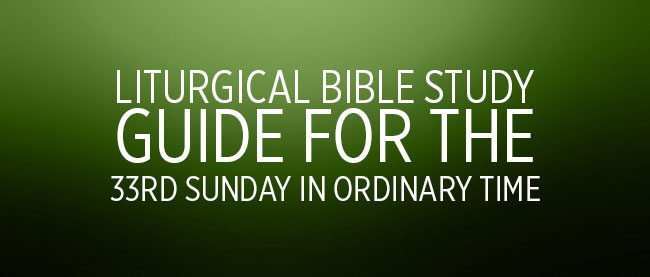1st Reading – Proverbs 31:10-13, 19-20, 30-31
The book of Proverbs is attributed to Solomon and is the oldest collection of inspired texts in the body of Wisdom literature. The book takes its name from the Hebrew word masal which means “a provocative saying;” a saying which gets the listener’s attention. In the early stages, these sayings were short in form – later they began to take the form of a parable or allegory. Being short and succinct, it was easy to remember and thus useful in oral teaching; in fact, parents used them for teaching their children.
The date of composition of the book of Proverbs is unclear. The introduction (chapters 1 through 9) appears to have been written last; perhaps around the 5th century B.C. (after the exile) but chapters 10 through 29 can be dated well before the exile. It is uncertain when chapters 30 and 31 might have been written.
Our first reading today praises the virtues of a good wife, painting a picture of the ideal woman who is lacking nothing in terms of perfection and integrity. With the qualities described and God’s grace she can face the future with optimism, knowing that God will watch over her and hers because she is so good. Obviously, if mothers are faithful to these virtues, society is going to have a good base. If we were to read each of the verses 10 through 31 instead of only a few, we would find a unique literary style – each of the 22 verses begins with a successive letter of the Hebrew alphabet; another mnemonic device which allows for easy memory in oral recitation and teaching.
2nd Reading – 1 Thessalonians 5:1-6
Today we finish our study of Paul’s first letter to the Thessalonians. Recall that this letter has been occasioned by questions which the Thessalonians have concerning the end times: will anyone have an advantage or disadvantage by having died before the parousia, and when will the parousia come?
Remember also that in last week’s reading Saint Paul answers the first question – no one will have an advantage as all will meet Jesus in their resurrected body at the same time. Saint Paul now goes on to discuss the second question, the timing of the parousia.
Gospel – Matthew 25:14-30
Last week we heard the parable of the wise and foolish virgins; a reminder to us all to live out our faith every day so that we will be prepared for the day of the Lord; the day when we are admitted to the heavenly banquet. Today we hear the parable of the talents. A talent wasn’t just any old coin, it had a value of about 100 pounds of silver. In this parable the main message is the need to respond to grace by making a genuine effort right through one’s life. All the gifts of nature and grace which God has given us should yield a profit. It does not matter how many gifts we have received, what matters is our generosity in putting them to good use. A person’s Christian calling should not lie hidden and barren; it should be outgoing, apostolic, and self-sacrificing.
Bible Study guide from Fr. Cielo Almazan


